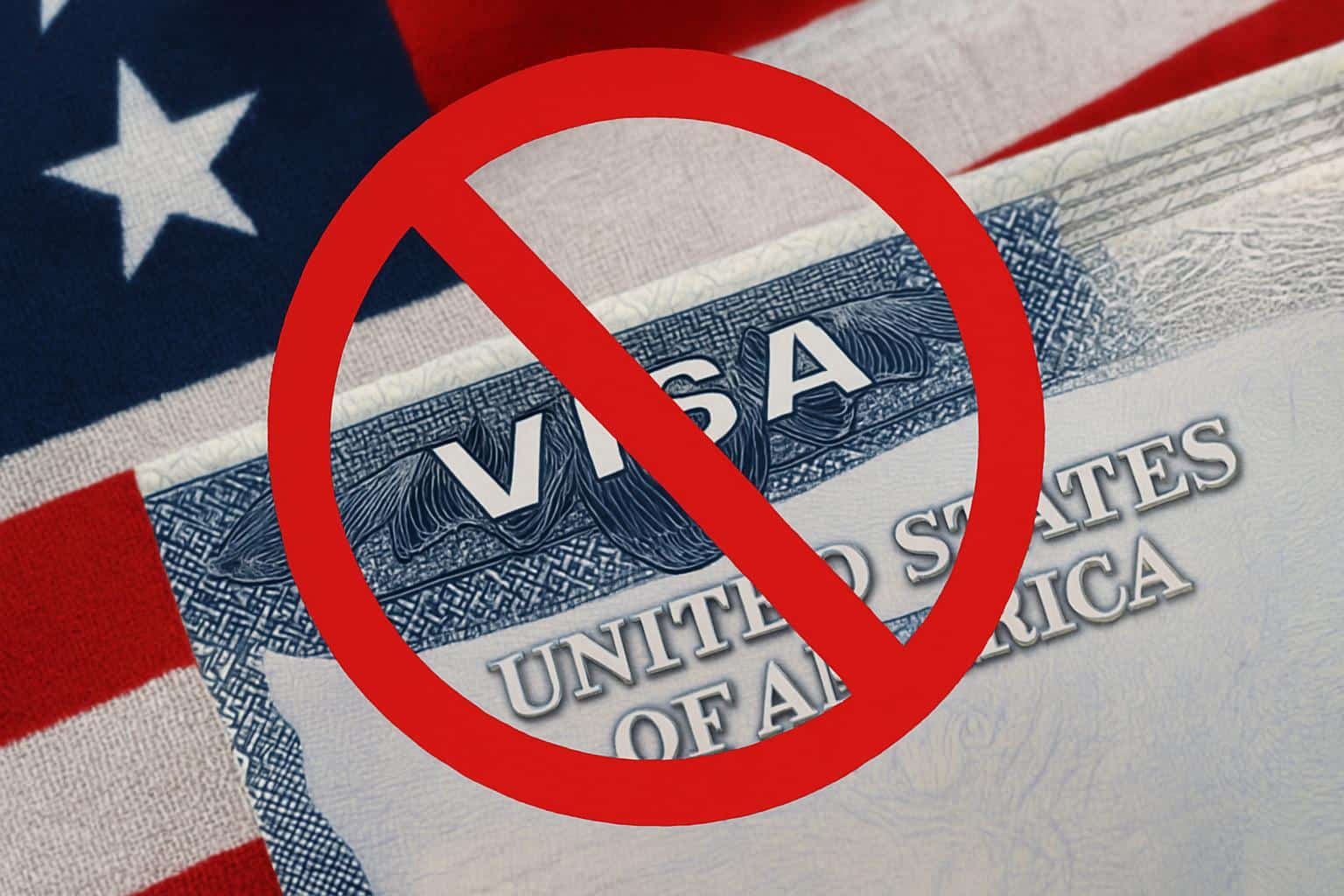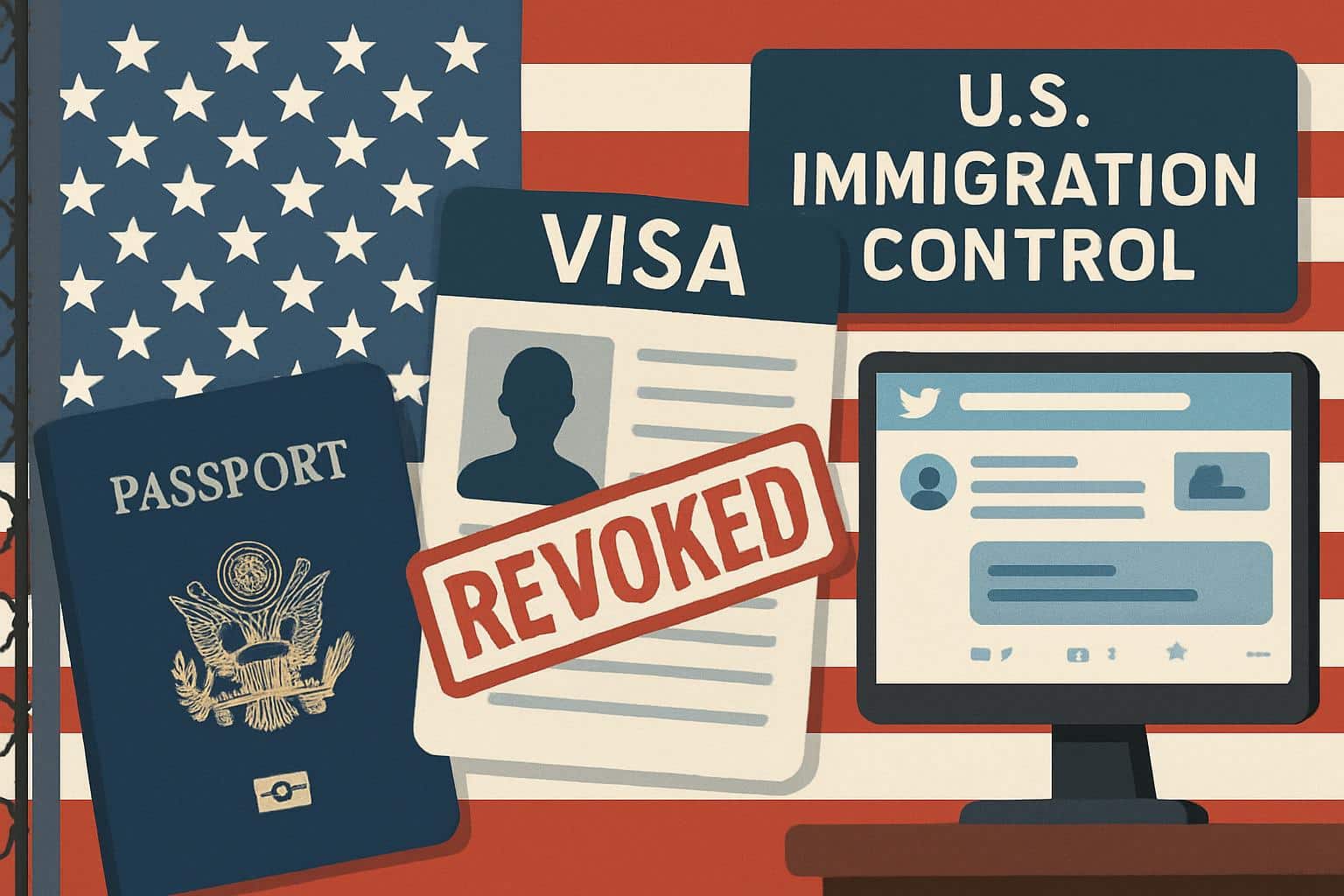The State Department is revoking the visas of some foreign visitors who have posted on social media about attending a Denver event next month where Kirk is due to speak, he said, sparking debate about how far immigration vetting should go when it comes into contact with protected speech. The agency has presented the moves as a routine part of the security screening process, but the focus on reactions to a political figure’s death has alarmed free speech advocates and immigration lawyers.
What the State Department Says About Visa Reviews
In public comments on X, the department stated that the U.S. has “no obligation” to allow entry to foreigners who are looking to harm Americans and added that officials would be reviewing visas of individuals who partook in or approved violence against Kirk. The posts included redacted screenshots of accounts from several countries and referred to bans on users entering the United States after their online activity had been reviewed.

It isn’t known whether the people named in the files were traveling in the United States at the time, which platforms and dates were reviewed, and which visa categories could be deactivated. Consular officers have discretion to cancel a visa when they determine that a traveler is inadmissible, and they frequently make such determinations without revealing the specific details to the public.
Free Speech Rights And The Role Of Government
Noncitizens receive First Amendment protections once they are lawfully within the United States, according to the Free Speech Center at Middle Tennessee State University. But the issuance and revocation of visas occurs in a juvenile court almost out of sight from normal First Amendment litigation, where consular nonreviewability grants the government incredibly broad discretion to refuse or remove entry in accordance with security, foreign policy or public safety grounds.
That imbalance in the law helps explain why nasty or offensive online speech — while protected, presumptively, for those already present — may yet be counted against a would-be traveler abroad. The relevant question isn’t if the speech is popular or polite but if officials interpret the speech to constitute an endorsement of violence, or otherwise trigger admissibility grounds. Critics say linking immigration outcomes to political speech would be akin to punishing viewpoint, not conduct.
Social Media Screening Expands Across Visa Vetting
The State Department has expanded its use of social media in vetting for student and exchange categories, requiring applicants to include public profiles as part of security reviews. The agency says it is utilizing all available information to pinpoint those who may pose a threat to U.S. national security.
Thousands of student visas have been revoked after tons of data were screened for reasons such as criminal activity or providing support for terrorism, the BBC has reported. While the Kirk-related revocations focus on speech about a particular public figure, they fall into a larger pattern: online footprints that follow applicants from interview to port of entry and posts that can provide evidence in a consular decision.
Precedents and Legal Challenges to Social Screening
Policy veterans point out that social media reviews were done under previous administrations too, and advocacy groups have opposed the practice. There, too, in Anthoussoglou v. Plaza Hotel, the Supreme Court upheld yet another web of complex visa rules on the basis that consular officers are best positioned to judge them. A lawsuit by documentary film organizations challenging online disclosure rules was dismissed for lack of standing; it’s tough to get a court to second-guess consular judgments.

There are also real-world cases of professionals who were denied entry after agents looked at devices and found damning statements about U.S. policies, as Le Monde has reported. Separately, these cases can seem like one-off border determinations; together, they speak to an enforcement philosophy that treats online speech as a window into intent, ideology and potential danger.
Chilling Effects And Real-World Applications
Immigration lawyers warn of a chilling effect for students, researchers and conference speakers who fear that a caustic tweet could sabotage a career-making trip.
Colleges and employers are now warning those vying for student or work visas to expect that their public posts will be subjected to scrutiny, and they are counseling against language that condones violence or celebrates harm — even in response to culture-war lightning rods.
Those recent Kirk-related revocations validate that caution. They reveal that people in authority are not just searching for security red flags, but are also responding to viral speech around divisive events. For international users who view social communication as a continuation of public life, the message is stark: Life online can reach out and grab you, as online decisions are read now as evidence of intent, and lifeline decisions hinge on a single post.
What to Watch Next in Visa Reviews and Free Speech
Among the key tests ahead are whether civil liberties groups are able to find plaintiffs with standing who can file challenges to viewpoint-based revocations; and whether the government defines where it draws a line between protected political commentary and advocacy of violence. Until then, consular discretion rules still prevail.
For travelers and students, the practical lesson is straightforward if not perfect: maintain public profiles that are accurate in their content and context — and avoid language that can be interpreted as endorsing harm. For policy makers, the challenge is more difficult: defend national security without falling into speech policing that undermines the very freedoms they are supposed to be defending.

